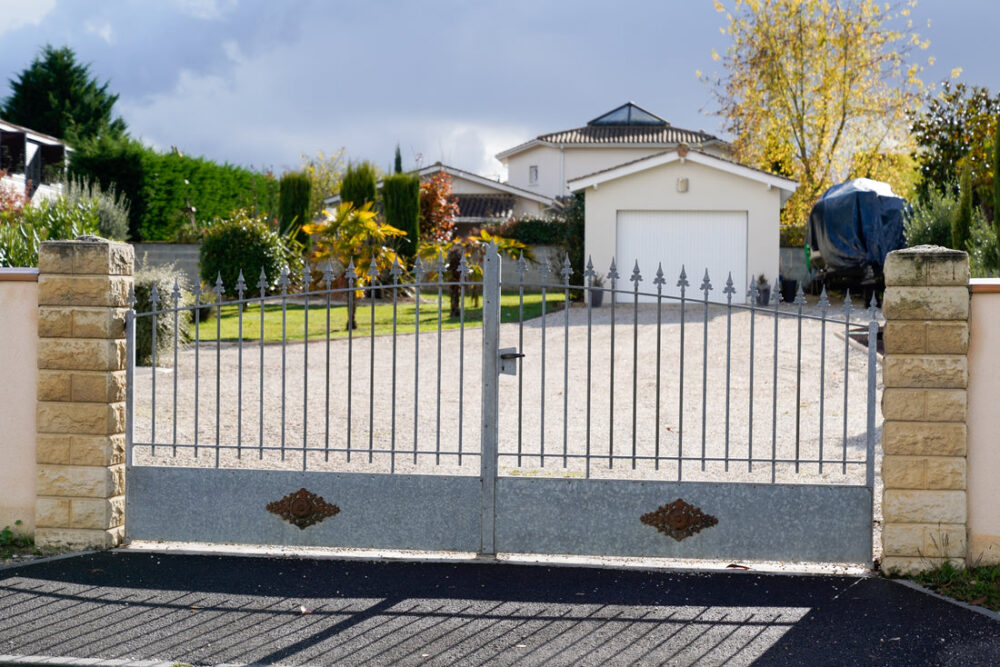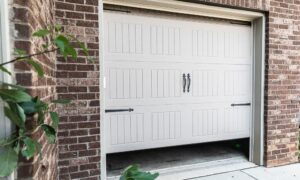This hidden aspect of driveway installation is probably one of the most important, as it can significantly influence the safety and integrity of your driveway. As a matter of fact, when driveway drainage isn’t done correctly, you could end up with damages to not only your driveway but your property (structural problems) and the environment (urban flooding and risks to health and safety).
Drainage and driveways go hand in hand, and below, we shall be taking a look at why proper drainage is a must-have for any driveway.
Importance of Driveway Drainage
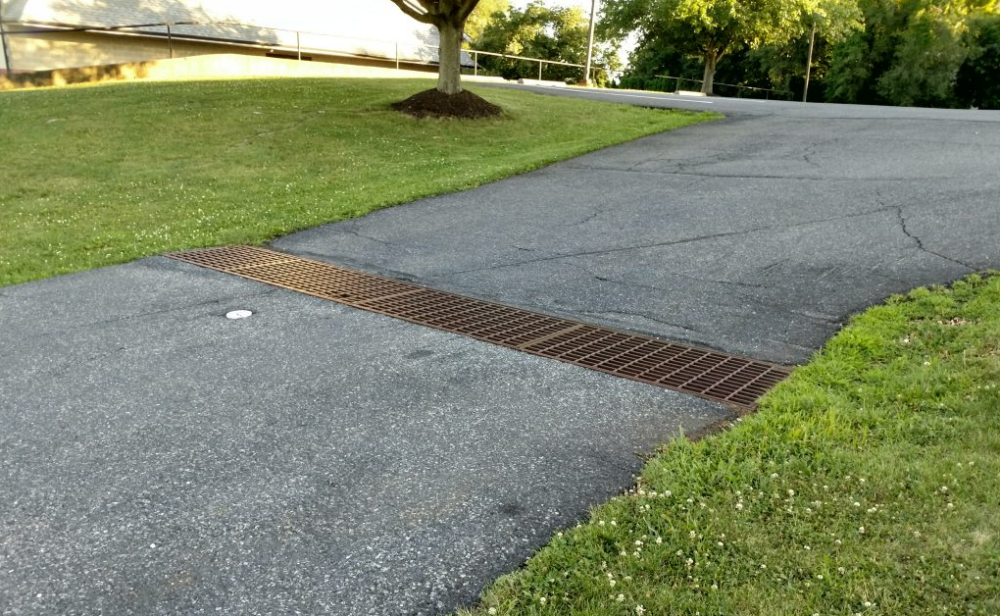
Source: trenchdrainblog.com
To Avoid Excess Wear
When your driveway (regardless of the driveway material) doesn’t drain properly, excess water tends to pool on its surface, and this can very quickly lead to wear and tear. This wear and tear usually manifests as cracks, holes and discolouration. A proper drainage system ensures that water doesn’t collect or freeze over the surface of your driveway and lead to these cracks or holes.
Preventing Soil Erosion
Preventing soil erosion is crucial for maintaining a healthy and aesthetically pleasing outdoor space. Improper water flow and drainage can result in the washing away of soil, leading to the destruction of lawns and landscaping, especially near driveways. To break the cycle of having to repeatedly replace eroded soil after heavy rainfall, it is essential to install a proper drainage system along with your driveway. This system will effectively redirect excess surface water, ensuring it follows the correct path and minimizing the risk of soil erosion. By implementing a reliable drainage solution, you can protect your outdoor areas, preserve the integrity of your landscaping, and maintain a visually appealing environment.
To Protect the Foundation
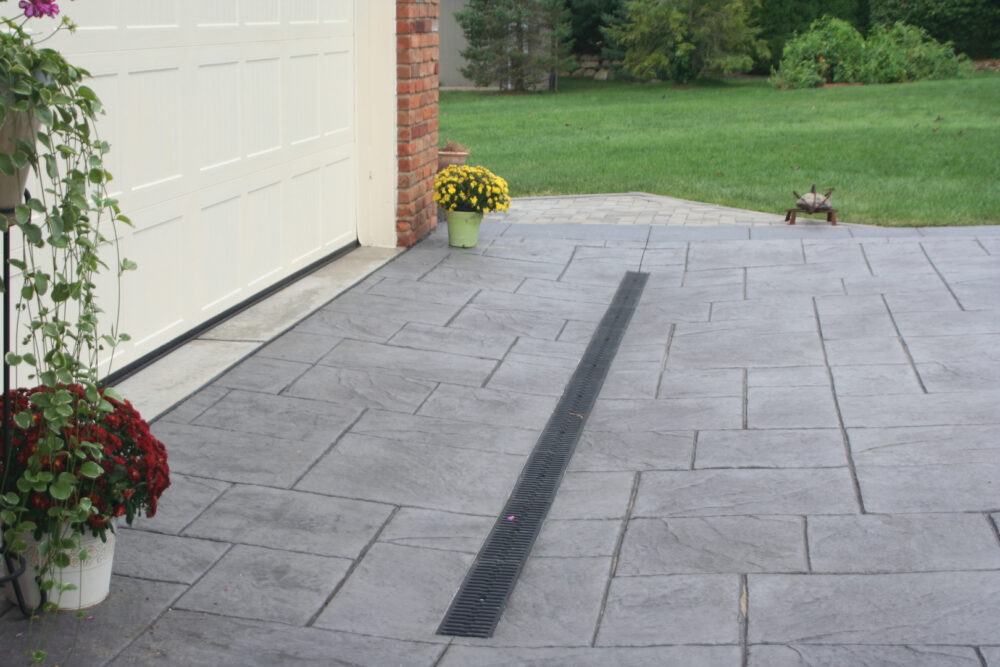
Source: deckmandc.com
In addition to the driveway’s surface and soil, your home’s foundation is another thing that can get damaged when your driveway doesn’t drain properly. This is because, while your driveway may be outside, it is still very much a part of your house and its entire system, so excess water that doesn’t drain will slowly but surely erode and cause cracks in the foundation. A proper drainage system is a surefire way to avoid this issue and the potentially expensive repairs it will require.
To Prevent Excess Moisture and Pooling Against Your Home’s Exterior Walls
Proper drainage is crucial to prevent excess moisture and pooling against your home’s exterior walls. Without an efficient drainage system, water can accumulate near the walls, leading to issues such as dampness, mold growth, and potential damage to the structure. Areas like the basement, floors, and interior walls are particularly vulnerable to these problems. To safeguard your home from structural damage and potential health risks associated with damp conditions, it is essential to prioritize the installation of a reliable drainage system for your driveway. This will help redirect water away from your home’s exterior, ensuring a dry and safe environment.
To Prevent Urban Flooding
Storm drains that can’t cope with runoff from driveways, and paved areas are some of the biggest contributors to floods. It has become such an issue that countries like the UK now have legislations that all new driveways over 5sq.m must have a proper drainage system that allows water to run into a permeable area.
Best Drainage Options for Your Driveway
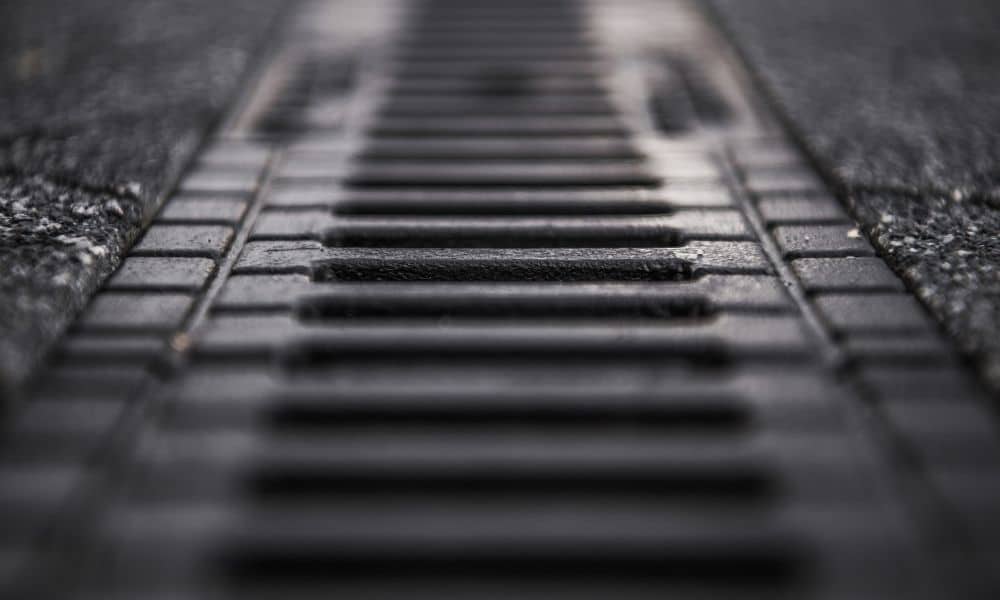
Source: abtdrains.com
Regardless of whether or not your driveway is made with a permeable material, a good drainage system is still needed to prevent water damage, soil erosion, foundation cracks, damaged landscapes, and dampness. Driveway drainage systems can either be pre-cast or cast in place, and below are some of the types you can consider.
• Polymer Drain: Polymer Drain is a pre-cast drain constructed using polymer concrete, offering a range of benefits for efficient drainage solutions. With its versatility, this drain system utilizes interlocking sections, allowing for convenient configuration adjustments to suit various needs. Whether it’s a straight channel, a curved path, or a custom design, Polymer Drain makes it easy to create the desired configuration.
One of its notable advantages is its affordability, making it an accessible option for homeowners and businesses alike. Additionally, the installation process is simplified, thanks to the lightweight nature of polymer concrete and the interlocking sections, reducing both time and labor required. This convenience makes Polymer Drain an excellent choice for DIY projects or professional installations.
• VectorDrain: VectorDrain is a pre-cast slot drain channel that stands out with its clean and slim profile. Designed to withstand heavy traffic and harsh environmental conditions, this drain is a reliable choice for areas that experience high footfall or vehicular activity. One of the standout features of VectorDrain is its excellent bonding capability with concrete coatings. This ensures a secure and durable connection to the surface, providing long-lasting performance. In terms of aesthetics, VectorDrain offers an almost invisible appearance once installed. The discreet profile of the drain seamlessly blends into the surroundings, making it an ideal choice for residential settings where visual appeal is important.
• TrenchFormer: This uses a customisable forming system to achieve a precise casting-in-place of a drainage system. The depth, width, slope, shape, and height of the drain will be measured accurately, and the TrenchFormer created accordingly. The TrenchFormer is then used to form a concrete trench drain, and upon completion, the former will be removed, leaving behind a drainage system that is both solid and stable.
Investing in Top Driveway Materials
For even better drainage, only top materials that offer good permeability should be used in the installation of your driveway. Concrete, asphalt, gravel and resin-bound driveways are examples of driveways that are porous and offer good permeability and drainage. Tarmac surfacing is also a great option.
Conclusion
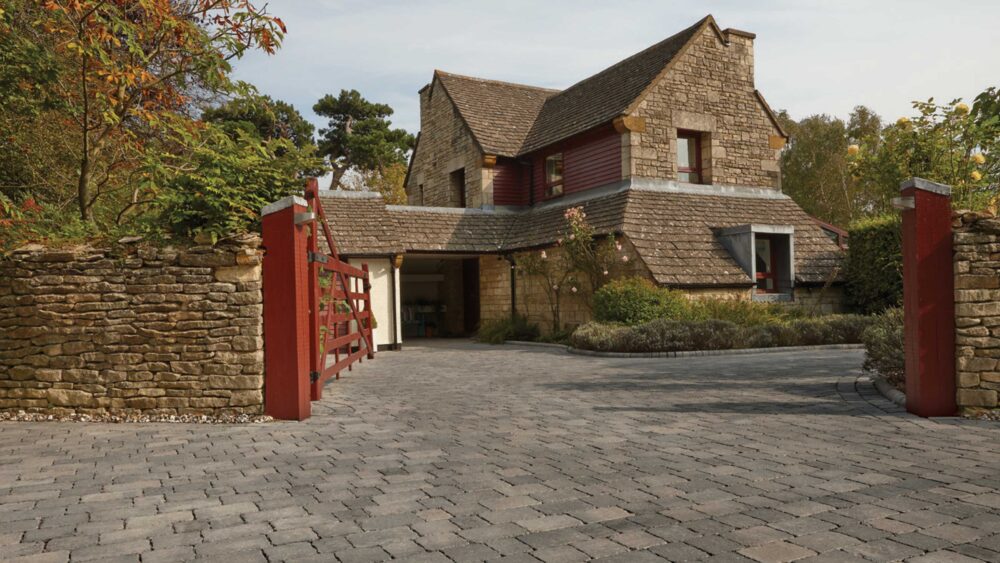
Source: gardeningetc.com
Without a doubt, a proper drainage system is a must-have for any type of driveway. It is a necessity for the continued function of your driveway and the overall protection of your property.


